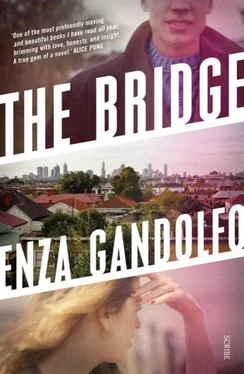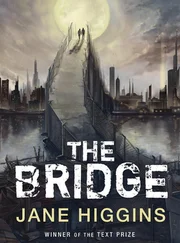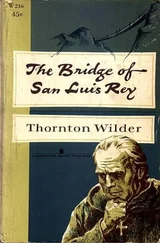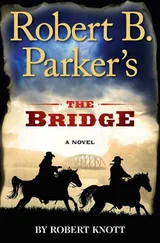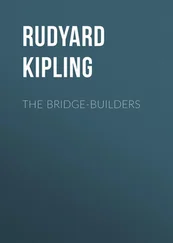During these afternoons, life was in a holding pattern. Beyond it was the future, what people referred to as getting back to a normal life or moving on , something none of them could imagine. And so they continued gathering, as if by coming together they could stop time. Or spin it backwards.
When Sam rang, Antonello was listening to Rae’s mother sharing her memories of Ashleigh as a toddler. Beverly was a stocky woman in her seventies. Everything about her was large — her breasts, her belly, her head, with its crown of unruly grey hair — except for her legs, which were slender and shapely. She sat on the sofa next to her daughter, holding Rae’s hand, patting her arm. Her legs were stretched out across the rug. Antonello sat opposite and stared at her feet, at her strappy sandals, at her toenails painted a soft yellow.
‘Who was that? I heard the phone,’ Alex asked as Antonello came back in.
‘Sam. An old friend.’
‘I’ve never heard you mention him,’ he said.
‘We worked together once. It was a long time ago.’
Alex shrugged and left the room.
As a child, Alex was enthusiastic and overly energetic. He’d had lots of friends. Once, when he was six, three of his friends demanded he pick his best, best friend: they wanted him to choose and he couldn’t decide.
‘Dad, who is your best friend?’ Alex had asked him.
‘Your mother.’
‘But what about a boy, a friend who is a boy?’
‘Your Uncle Joe. Your Uncle Giacomo.’
‘No, someone else,’ Alex insisted. ‘Outside the family? Why don’t you have other friends? You know, like from work? Or from football?’
‘I’ve got responsibilities and I’ve got you and your sister and your mother, and my mother and father, and I don’t have time.’ Antonello wanted to say, Stop asking me all these questions , you little pest. But he knew that even Alex could see the flaw. What kind of man has no friends?
The following afternoon, when Antonello arrived at the Vic, Sam was already sitting at a table, a beer in front of him. On Antonello’s side was a glass of red wine. ‘I took a punt — ordered you a merlot.’
‘Thanks. Still my drink of choice. I used to pretend I liked beer, I thought it’d make me more Australian, but I gave up that a long time ago.’
‘Unfortunately, I like it too much. More ocker than the ones born here.’
In the bar, they were the sole customers. A middle-aged waitress carried a tray of salt and pepper shakers and placed a pair on each table. The barman and the chef played pool. From the games room next door, there was the constant beep and chime of the pokie machines, the clink of coins against the metal trays, the jackpot jingles and old-time tunes, vaguely familiar. Flashing lights reflected on the mirror above the bar.
It was a gloomy pub. Poorly renovated several times since the 1970s, the layers of change were visible, one on top of the other. Like make-up clumsily applied over scar tissue, it failed to camouflage its faults.
‘Don’t remember the bar ever being this empty,’ Antonello said.
‘No more factories around here, no more punters,’ Sam said.
It was difficult not to drift off into the past. Antonello had spent so many nights sitting at the bar with Sam and Slav, watching Bob play pool. Bob had a knack for it and there was usually some younger bloke willing to challenge him to a game. They’d throw a coin or two on the table, but no one ever took Bob’s money. Antonello remembered gathering around the bar after every shift. The pungent mix of sweat and beer, the arguments — mostly about football — and the yelling, the stupid jokes and the raucous laughter. The dead were back, sitting at the bar. They swung around to face him and raised their glasses.
‘Just a few compulsive gamblers now,’ Sam said, nodding towards the pokies. ‘Don’t come here anymore? This would still be your local?’
‘This or the Blarney. But I don’t go to the pub much. Paolina dragged me here one night about ten years ago — she wanted to have dinner and play the pokies. I couldn’t stomach it. I kept expecting to see Bob or Slav at the bar. I could hear Bob’s laughter… We didn’t even stay to eat.’
‘Should we go somewhere else?’ Sam asked, picking up his beer and taking a long swig. Sam had put on weight, but he wasn’t fat; there was just a hint of a beer belly under the blue Australian Workers’ Union windcheater. Antonello stared at his face: there were a few frown lines, some wrinkles, the flesh around his cheeks sagging, but he was still so familiar, with the broad Roman nose, the bushy eyebrows, and those luminous hazel eyes.
‘No. I was going to suggest somewhere else, but nowhere else seemed right, either.’
‘I’m surprised you’re still living in the area,’ Sam said. ‘I thought you might’ve shifted away. A lot of us did.’
‘Where are you?’
‘Geelong. I work out of the office there and live in a flat — small place, with a view of the bay from the bathroom window.’ Sam smiled, bringing his hands close together to show the narrowness of the view.
‘Paolina wanted to move. But I couldn’t imagine living anywhere else.’ He didn’t tell Sam that the further from the bridge he was, the worse the nightmares. After Alex and Nicki had moved out of home, Antonello and Paolina went on a trip to Europe. They booked a twenty-day tour and spent time in Sicily with their extended families. Every night he was away, Antonello dreamt of the bridge. Not the falling bridge he’d witnessed, not the half-constructed bridge, but the finished bridge crowded with peak-hour traffic. He watched the piers crumbling, the roadway collapsing over and over again, cars and people dropping into the river like dead birds. He had those nightmares at home too, but he could get up, go outside, and see the bridge. Calm himself down. Away from it, the anxiety clung to him, and there was no reprieve. He was bound to the bridge, bound to living under its shadow.
‘I thought I might never see you again,’ Sam said, and Antonello heard the reproach. What kind of man refused to see his best friend?
‘I’m sorry, Sam. At first I needed to be alone, I didn’t want to see anyone. And then it seemed too much time had gone by.’
Antonello remembered watching Sam coming up the driveway and shaking hands with Paolina’s father, who was digging over the soil in the vegetable patch. Sam knocked and pounded on the door while he stood inside the bungalow, gripping the back of the chair to stop himself from falling, from caving into himself, his head throbbing. His body shaking.
‘I gave up after Alice left,’ Sam said. ‘I had my own shit and I thought, bugger you.’
Antonello nodded. ‘I know for some of the blokes it helped to get together, working on the plaque and the memorial, and even on finishing the bridge, but for me…’
‘It was fucking hard for all of us,’ Sam said, pushing his empty glass aside.
‘Another round?’ Antonello asked. His own glass was still half full.
Sam nodded, and Antonello called out to the barman, ‘Same again.’
‘A couple of times I set out to come and see you,’ he continued. ‘Once I got as far as your gate. And then I thought I’d come back to work on the bridge and I’d see you on the site, but the week we were due back I got so sick I couldn’t get out of bed. They call them panic attacks now. I had the shakes so bad that at one point they did tests for Parkinson’s. Paolina was pregnant and we had the mortgage and I had to work. My father organised a storeman’s job at Bradmill’s. Most days the only sunlight I saw was through the gaps between the storeroom door and the containers. I stayed there for a couple of years, until Sandy organised the job in the library. So I took it and went back to school to retrain.’
Читать дальше
